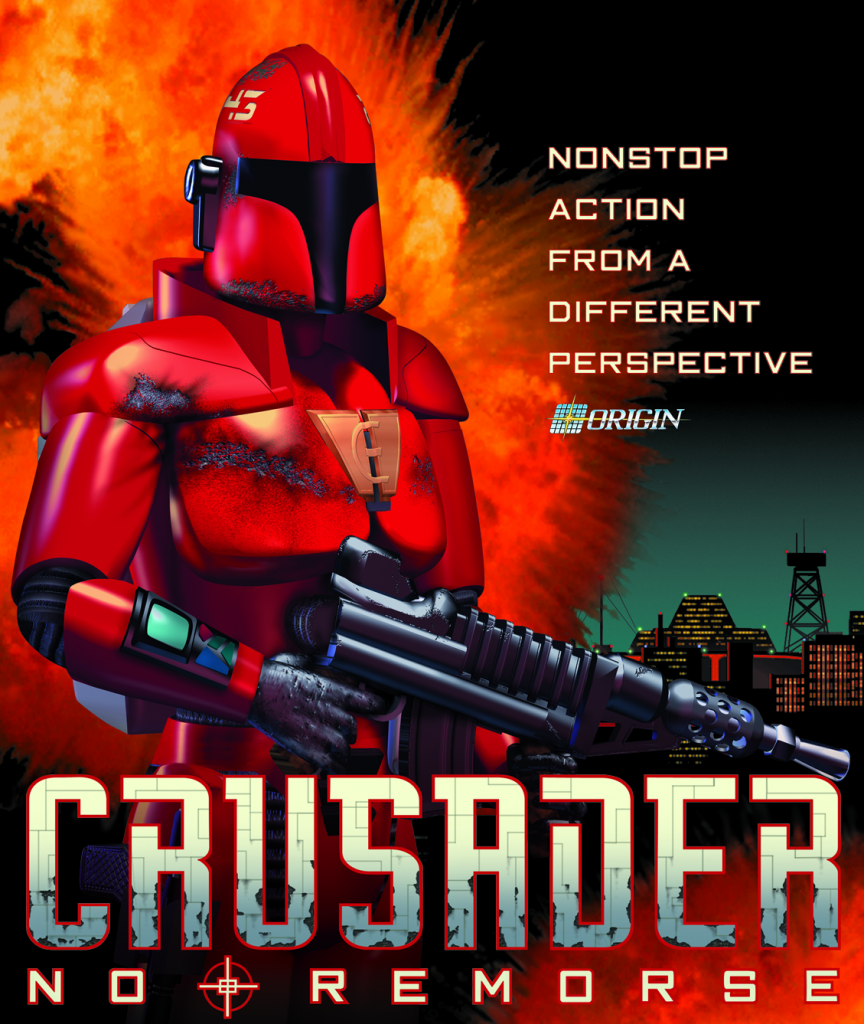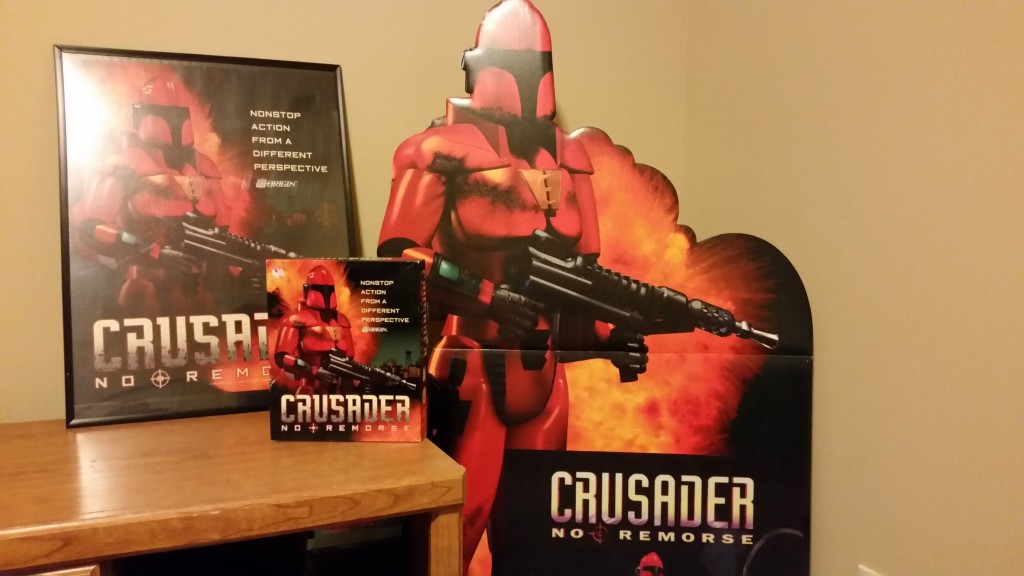This month, we celebrate the 20th anniversary of the release of Crusader: No Remorse. There are differing opinions among Crusader fans as to which game is superior; I find myself in the No Remorse camp. Mystery around whether or not the game was going to be a worthy investment for Electronic Arts put pressure on Tony Zurovec and his “Loose Cannon” sect of Origin Systems to deliver something that was up to their “We create worlds” motto. They decided to take a gamble on having Zurovec—who then only worked as programmer on Ultima VII and VIII—direct the game. While Origin did this before for games like Wing Commander, Crusader followed the acquisition of Origin by Electronic Arts, so pressure to perform was on.
Development of No Remorse lasted between 16 and 18 months, and like any game of the time (and now!), it was met with difficulties. Sheer technical barriers like creating the game in a then-unheard of 640×480 resolution solely for CD-ROM coupled with publisher woes of pushing the release date closer than anticipated put the game on the edge of vision reduction and cancellation. Origin Systems was no stranger to pushing boundaries, so much so that they eventually became synonymous with it. Even Crusader proved to be a risk for the company.
“From a marketing perspective, those technological decisions – third-person perspective, CD-ROM, SVGA – were all taking me in the wrong direction and limiting my potential audience. I heard that many, many times throughout development. I persisted because rather than try and guess what other people might want, I just kept steering towards what I personally found appealing, and then hoped that there were more people like me.”[1]
Tony Zurovec
It was a challenge for everyone involved—Steve Hemphill completely redoing his storyboarding, video directing, and production following a change in the video compression engine; Beverly Garland scrapping dozens of iterations of her art; Tony questioning whether or not it was a good game or a good program. Not to mention internal strife in the development team. Stay tuned for that!
Their hard work paid off. Crusader follows the lineage of quality by which Origin abided.
“It was great. We were pioneers. We were developing games concurrently with the advent of this new fangled thing called the internet. We took pride in pushing the envelope. I can recall that people would buy new computers just to be able to play an Origin game. This was back in the day when a computer was a very huge investment, much different than today. At the time I worked at Origin, the industry was much smaller and exclusive than it is today. We felt like astronauts or National Geographic Explorers. We were rock stars, just a lot less cool.”[2]
Matt Sheffield
While I rarely play the game anymore, it’s still the one I hold closest to my heart. Having been eight years old when I first laid eyes on it, it was the most mind-blowing game I ever saw (after I learned how to use a computer for the first time—a whole ‘nother story!) The sharp graphics, the superb soundtrack, the stellar gameplay. Everything about it captivated me no game did before. It’s not all childhood naivety that I grew attached to the game: it’s a legitimately good game that deserves to be appreciated (once getting over the controls).
No Remorse may not have the largest fan base, but there is no doubt that it had an impact on that mid-’90s generation of gamers.






